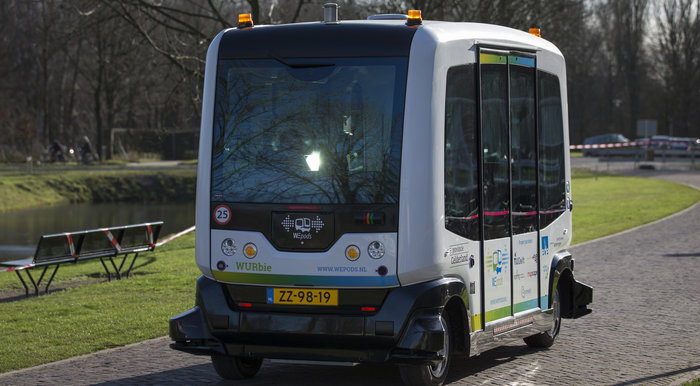"Currently two WEPods will drive around the campus" at Wageningen University, where it is being tested, said Jac Niessen, the university`s science spokesman.
"At the end of a successful testing phase, the route will be expanded off campus," the province said in a press release.
The 12-minute route will take passengers along quiet back roads, but the minibus will have to contend with cars, cyclists and pedestrians.
It will be programmed with a carefully mapped-out route in which all obstacles including trees and streetlights have been documented.
The eventual plan "is to have them drive on a route, within traffic from nearby Ede to Wageningen by the middle of the year," Niessen told AFP.
The minibus will be equipped with cameras, radar and laser sensors with on-board computers relaying information to the brakes and steering.
Its movements will be carefully watched from a central control room and it can be handed over to a controller if difficulties arise.
The French-designed WEPods were delivered to Wageningen in September and research began immediately.
Electric-powered, the minibuses are capable of reaching speeds of up to 40 kilometres per hour (25 miles per hour) but will initially travel no faster than 25 km per hour. It has a range of around 100 kilometres (60 miles).
Further research is needed into insurance and liability issues, as well as human behaviour, traffic control and legislation, provincial authorities said.
"This pilot project will help us shape the future" of transport, said Conny Bieze, Gelderland`s provincial infrastructure chief.
"This initiative helps to contribute to new forms of public transport," she said.
"People will continue to travel, only the way they do it is going to change."
More about:
















































